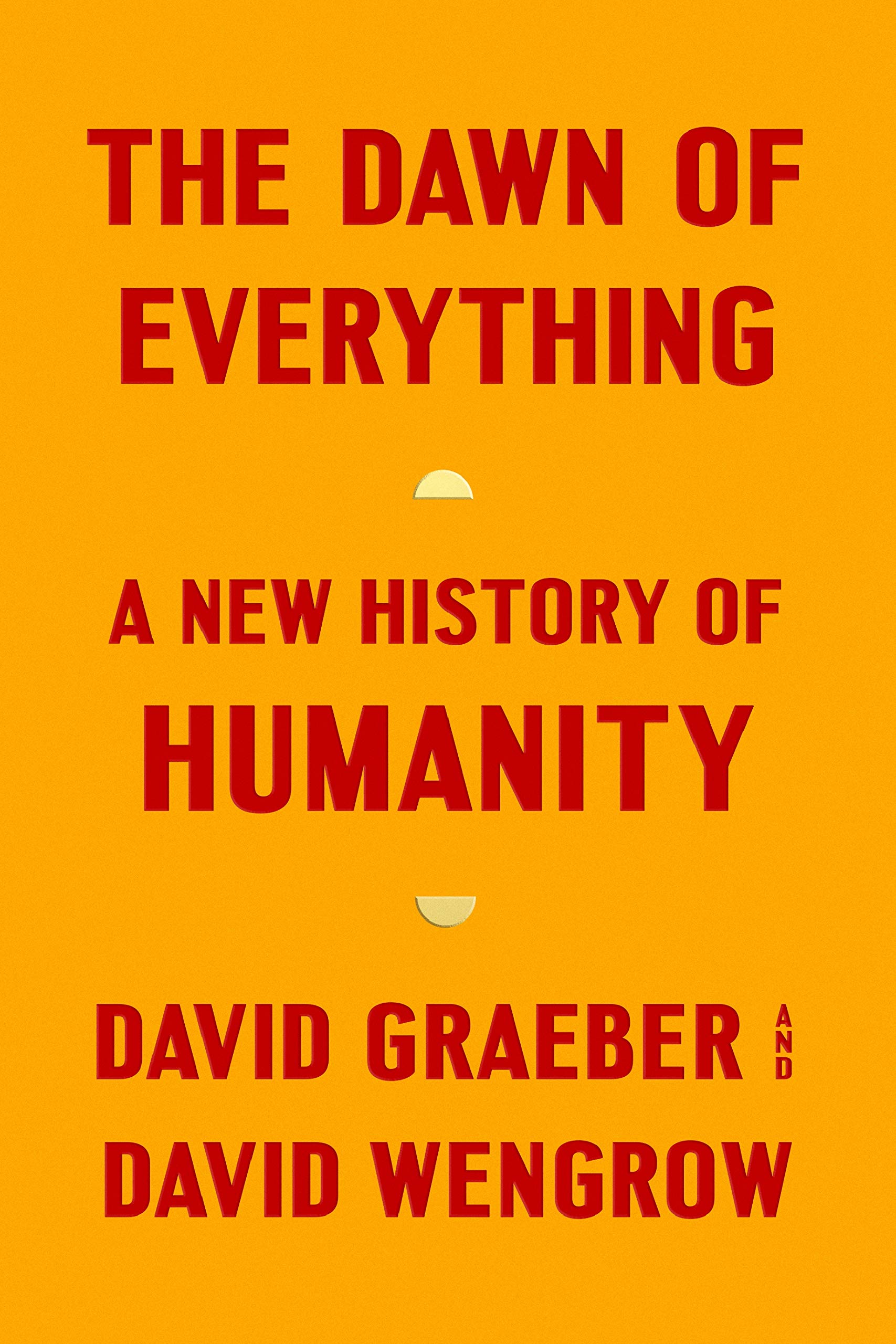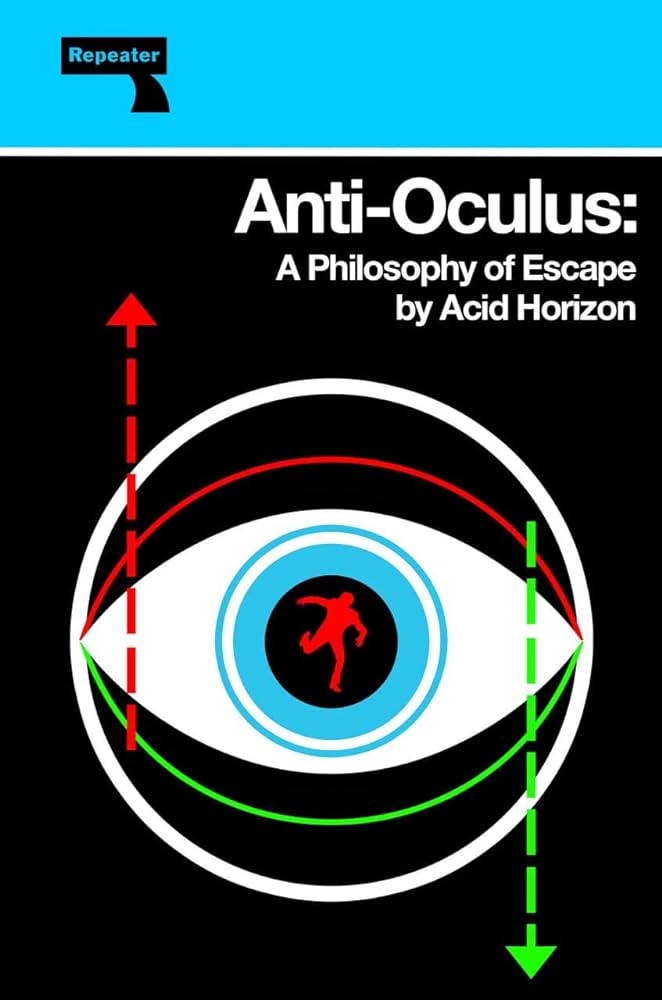While quite inspiring and empowering, with a clear view and concept for a more emancipatory, ecological and free society and a critique of the ways current society is killing us, itself and the non-human world beside it, it's message sadly gets tainted by several outdated views on pre-state humanity and it's evolution, confusing dismissal of gender as revolutionary agent and the weird westerners typical fascination with Athenian democracy as inspiring - even with its shortcomings (which just so happen to be actual slavery, complete exclusion of all women and any non Athenian male) Worthwhile if specifically interested in bookchins communalism or as a complete novice to ecoanarchism.
User Profile
Dreams of fungal futures and rhizomatic resistance. Food sovereignty, total liberation & interdependence. Dionysian harlequin. Trying to live as full and playful and intensely and loving as possible. He/Him 🏴🌾
This link opens in a pop-up window
myco's books
User Activity
RSS feed Back
myco quoted Mischief Acts by Zoe Gilbert
So, go forth and be mischievous, do no harm if you can help it, make room for your wild Herndon and your serious Rollo, and remember, if you feel that crack start to widen and hurt, pay attention. Remember the myth. Remember your imagination shapes your reality. Enchantment is a state of mind, but that's another lecture, so you'll have to wait until next week. That's all, folks.
— Mischief Acts by Zoe Gilbert (Page 428)
myco rated The Dawn of Everything: 5 stars

The Dawn of Everything by David Graeber, David Wengrow
The renowned activist and public intellectual David Graeber teams up with the professor of comparative archaeology David Wengrow to deliver …
myco started reading Feminist Theory of Violence by Ruth Wilson Gilmore

Feminist Theory of Violence by Ruth Wilson Gilmore, Françoise Vergès, Melissa Thackway
The mainstream conversation surrounding gender equality is a repertoire of violence: harassment, rape, abuse, femicide. These words suggest a cruel …
myco reviewed Remaking Society by Murray Bookchin
myco quoted Remaking Society by Murray Bookchin
The means of life must be taken for what they literally are: means without which life is impossible. To deny them to people is more than "theft" [...]; it is outright homicide. No one has a right to own property on which the lives of others depend either morally, socially, or ecologically. Nor does anyone have a right to design, employ, or impose privately owned technological equipment on society that damages human health and the health of the planet.
— Remaking Society by Murray Bookchin (Page 185)
myco quoted Remaking Society by Murray Bookchin
Capitalism, in effect, constitutes the point of absolute negativity for society and the natural world. One cannot improve this social order, reform it, or remake it on its own terms with an ecological prefix such as "ecocapitalism." The only choice one has is to destroy it, for it embodies every social disease - from patriarchal values, class exploitation, and statism to avarice, militarism, and now, growth for the sake of growth - that has afflicted "civilization" and tainted all its great advances.
— Remaking Society by Murray Bookchin (Page 87)
myco quoted Remaking Society by Murray Bookchin
Accumulation to undermine, buy out, or otherwise absorb or outwit a competitor is A condition for existence in a capitalist economic order.
That nature, too, is a victim of this competitive, accumulative, and ever-expanding social fury, should be obvious if it were not for the fact that there is a strong tendency to date this social trend's origins back to technology and industry as such. That modern technology magnifies more fundamental economic factors, notably, growth as a law of life in a competitive economy and the commodification of humanity and nature, is an apparent fact. But technology and industry in themselves do not turn every ecosystem, species, tract of soil, waterway, or, for that matter, the oceans and the air, into mere natural resources. They do not monetize and give a price-tag to everything that could be exploited in the competitive struggle for survival and growth. To speak of "limits to growth" under a capitalistic market economy is as meaningless as to speak of limits to warfare under a warrior society. The moral pieties that are voiced today by many well-meaning environmentalists, are as naive as the moral pieties of multinationals are manipulative. Capitalism can no more be "persuaded" to limit growth than a human being can be "persuaded" to stop breathing. Attempts to "green" capitalism, to make it "ecological," are doomed by the very nature of the system as a system of endless growth.
Indeed, the most basic precepts of ecology, such as the concern for balance, a harmonious development toward greater differentiation, and ultimately, the evolution of greater subjectivity and consciousness, stand radically at odds with an economy that homogenizes society, nature, and the individual, and that divides human against human and society against nature with a ferocity that must ultimately tear down the planet.
— Remaking Society by Murray Bookchin (Page 86)
myco quoted Remaking Society by Murray Bookchin
But capitalism, like the nation-state, was neither an unavoidable "necessity," nor was it a "precondition" for the establishment of a cooperative or socialist democracy.
— Remaking Society by Murray Bookchin (Page 82)
myco finished reading The Dawn of Everything by David Graeber

The Dawn of Everything by David Graeber, David Wengrow
The renowned activist and public intellectual David Graeber teams up with the professor of comparative archaeology David Wengrow to deliver …
myco quoted The Dawn of Everything by David Graeber
In developing the scientific means to know our own past, we have exposed the mythical substructure of our 'social science' - what once appeared unassailable axioms, the stable points around which our self-knowledge is organized, are scattering like mice. What is the purpose of all this new knowledge, if not to reshape our conceptions of who we are and what we might yet become? If not, in other words, to rediscover the meaning of our third basic freedom: the freedom to create new and different forms of social reality?
— The Dawn of Everything by David Graeber, David Wengrow (Page 525)
myco quoted The Dawn of Everything by David Graeber
Perhaps if our species does endure, and we one day look backwards from this as yet unknowable future, aspects of the remote past that now seem like anomalies - say, bureaucracies that work on a community scale; cities governed by neighbourhood councils, systems of government where women hold a preponderance of formal positions; or forms of land management based on care-taking rather than ownership and extraction - will seem like the really significant breakthroughs, and great stone pyramids or statues more like historical curiosities.
— The Dawn of Everything by David Graeber, David Wengrow (Page 523)
myco quoted The Dawn of Everything by David Graeber
complex systems don't have to be organized top-down, either in the natural or in the social world. That we tend to assume otherwise probably tells us more about ourselves than the people or phenomena that we're studying.
— The Dawn of Everything by David Graeber, David Wengrow (Page 515)
myco quoted The Dawn of Everything by David Graeber
If something did go terribly wrong in human history - and given the current state of the world, it's hard to deny something did - then perhaps it began to go wrong precisely when people started losing that freedom to imagine and enact other forms of social existence, to such a degree that some now feel this particular type of freedom hardly even existed, or was barely exercised, for the greater part of human history.
— The Dawn of Everything by David Graeber, David Wengrow (Page 502)
myco quoted The Dawn of Everything by David Graeber
in all parts of the world small communities formed civilizations in that true sense of extended moral communities. Without permanent kings, bureaucrats or standing armies they fostered the growth of mathematical and calendrical knowledge. In some regions they pioneered metallurgy, the cultivation of olives, vines and date palms, or the invention of leavened bread and wheat beer; in others they domesticated maize and learned to extract poisons, medicines and mind-altering sub- stances from plants. Civilizations, in this true sense, developed the major textile technologies applied to fabrics and basketry, the potter's wheel, stone industries and beadwork, the sail and maritime navigation, and so on.
A moment's reflection shows that women, their work, their concerns and innovations are at the core of this more accurate understanding of civilization. As we saw in earlier chapters, tracing the place of women in societies without writing often means using clues left, quite literally, in the fabric of material culture, such as painted ceramics that mimic both textile designs and female bodies in their forms and elaborate decorative structures. To take just two examples, it's hard to believe that the kind of complex mathematical knowledge displayed in early Mesopotamian cuneiform documents or in the layout of Peru's Chavín temples sprang fully formed from the mind of a male scribe or sculptor, like Athena from the head of Zeus. Far more likely, these represent knowledge accumulated in earlier times through concrete practices such as the solid geometry and applied calculus of weaving or beadwork. What until now has passed for 'civilization' might in fact be nothing more than a gendered appropriation - by men, etching their claims in stone - of some earlier system of knowledge that had women at its centre.
— The Dawn of Everything by David Graeber, David Wengrow (Page 433)







